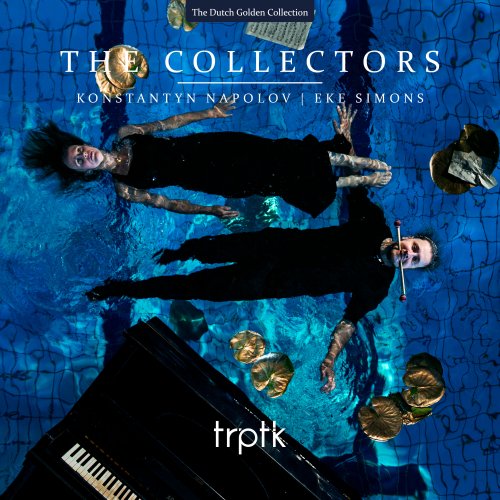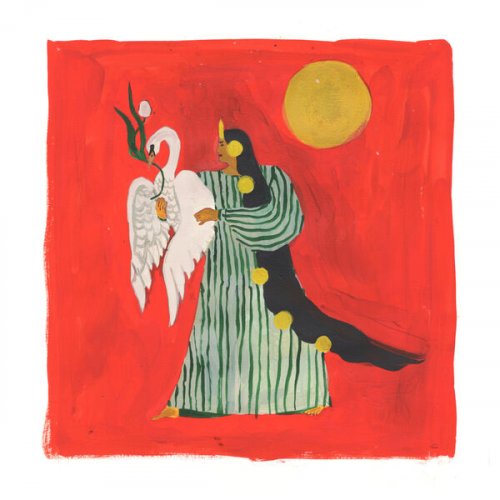Konstantyn Napolov, Eke Simons - The Collectors (2018) [Hi-Res]

Artist: Konstantyn Napolov, Eke Simons
Title: The Collectors
Year Of Release: 2018
Label: TRPTK
Genre: Classical
Quality: flac lossless (tracks) / flac 24bits - 96.0kHz +Booklet
Total Time: 01:09:43
Total Size: 294 mb / 1.07 gb
WebSite: Album Preview
TracklistTitle: The Collectors
Year Of Release: 2018
Label: TRPTK
Genre: Classical
Quality: flac lossless (tracks) / flac 24bits - 96.0kHz +Booklet
Total Time: 01:09:43
Total Size: 294 mb / 1.07 gb
WebSite: Album Preview
01. The Bells of St. Clement's: I. Oranges and lemons
02. The Bells of St. Clement's: II. The chopper
03. The Bells of St. Clement's: III. A place without darkness
04. Once There Was: I. On a wall, in a beck
05. Once There Was: II. Here comes a candle
06. Once There Was: III. A garden full of snow
07. Once There Was: IV. Until the sun
08. Once There Was: V. XYZ and ampersand
09. Once There Was: VI. All the birds in the air
10. Once There Was: VII. Black wool
11. The Collectors
12. Shameless
Music for piano and percussion, music that can be more expressive and explosive than any other duo imaginable. The beautiful sonority of a big Fazioli grand piano, combined with the raw force and timbral structure of a giant set of percussion, and even some electronics here and there.
Jan-Peter de Graaff’s The Bells of St. Clement’s is a work in three movements based on the English nursery rhyme “Oranges and Lemons”. This nursery rhyme plays in important role in the novel “1984” by Orwell. In it, the nursery rhyme is a symbol of the notion that the promise of freedom in a totalitarian society might be another form of oppression, where hope is a terrible illusion.
Yannis Kyriakides’ Once There Was is a suite of pieces based on traditional nursery rhymes as well. Many of these rhymes have dark and historically significant themes, yet are used to foster emotion and cultivate language. In some cases, rhymes were censored to mask the political message that lie within.
In Moritz Eggert’s piece The Collectors, the composer wants to find a way to tell the story of how music is collected, how it consists of sounds and ideas and events that slowly begin to make sense because they are arranged in a certain order. To collect is to try finding meaning in a seemingly disordered world. Eggert has always had the feeling it secretly makes a lot of sense. Both the world and collecting.
Samuel Penderbayne’s Shameless is a short, dense and theatrical work. His primary stimulus for the piece was to find the point where physical instrumental virtuosity combines effectively with theatrical performance. This can be seen in three main sections: the first is a sort of cat-and-mouse between percussion and piano; the second is a loud and shameless cacophony of yelling, piano clusters and gongs; the final part is a relatively soft and withdrawn meditation that should give the work a surprisingly calm finish.
The Dutch Golden Collection was founded by Konstantyn Napolov to develop percussion instruments, search and create new music languages, extend the repertoire for solo and chamber music, and promote the created contemporary works worldwide. Popularisation of percussion instruments and creating new masterworks is one of the key aims of The Dutch Golden Collection.
![Eero Koivistoinen - For Children (1970) [2006] Eero Koivistoinen - For Children (1970) [2006]](https://www.dibpic.com/uploads/posts/2026-02/1771615516_ff.jpg)




![Acid Mothers Reynols, Acid Mothers Temple, Reynols - Vol. 3 (2024) [Hi-Res] Acid Mothers Reynols, Acid Mothers Temple, Reynols - Vol. 3 (2024) [Hi-Res]](https://img.israbox.com/img/2026-02/21/vgzin7mjpuc9xi8v2ce3z1jc8.jpg)
![Ali Shaheed Muhammad, Adrian Younge - Cross: Season 2 (Prime Video Original Series Soundtrack) (2026) [Hi-Res] Ali Shaheed Muhammad, Adrian Younge - Cross: Season 2 (Prime Video Original Series Soundtrack) (2026) [Hi-Res]](https://img.israbox.com/img/2026-02/18/c61izyjkl1wnuz91hzkfnam7x.jpg)

